It’s extremely hard for me to understand why any society would tolerate or condone systematic animal cruelty, but unfortunately, there are still many cultures throughout the globe that do. That’s because many of them still view animals, including dogs and cats, as objects rather than sentient creatures deserving of compassion, protection and respect. South Korea remains such a country. And while it’s not a good place to be born a dog, it’s an even worse place to be born a cat.
First off, South Korea has a huge homeless cat problem. Feral and abandoned felines are extremely common, especially in and around large cities such as Seoul, which is estimated to have approximately 200,000 feral cats living within its borders. With no system in place to humanely reduce their populations and few animal welfare organizations or shelters able to help and protect them, stray cats are basically on their own to either survive or die, whether from starvation, extreme temperatures, disease or abuse at that hands of humans. Maybe that’s why most street cats rarely live beyond five years of age. They are simply seen as vermin – vermin to be destroyed.
“Unlike Japan, Koreans are notorious for holding negative sentiments towards cats,” explained Soyoun Park, founder and executive director of Coexistence of Animal Rights on Earth (CARE). “They think of them as wicked and evil creatures. Perhaps their negative image comes from old Korean folktales where felines often portray the treacherous antagonists, thus leading to the mass population fearing cats. People would believe that cats would bring bad luck to their owners and so would rarely acknowledge them.”
She continued, “However, as the number of citizens owning cats has increased, the number of people who have begun to care for stray cats has increased, as well. This boost in interest has inspired many to help the street cats by giving them food, giving these people the titles of ‘cat moms.’ Nevertheless, the spike in people willing to help the abandoned cats has triggered an opposite spike in people who oppose this behavior, so it is still a highly controversial topic.”
In Seoul, dirty, starving and sickly felines are common sights in alleys, on rooftops and in parks. They live on the streets, scratching through trash bins in search of food, catching rodents that roam around the many restaurants and seeking shelter under parked cars or behind buildings. They are shunned, have objects thrown at them and are always at risk of being abused, often in very cruel and sadistic ways. As a result, most stray cats are terrified of humans.
“It has been a common practice to use rat poison or other toxic chemicals in order to kill stray cats on the street,” Soyoun said. “However, in recent days there have been much more violent cases of animal abuse recorded. For example, some people would hang treats on a fishing rod and proceed to beat the cats to death once they grasped the hook. Furthermore, there have been several cases of people dropping kitties from the tops of buildings or cutting off parts of their bodies. In our experience at CARE we have also encountered several cases where cats have been set on fire or been poisoned by toxins mixed into food given by the aforementioned ‘cat moms.’ In recent news, there was an incident in which 600 street cats were captured alive and boiled in hot water, then sold to ‘health care centers’ illegally. The methods of animal abuse are extensive and vulgar.”
To make matters worse, South Korea is home to a thriving, albeit illegal, dog and cat meat trade, a gruesome industry that consumes approximately 2.5 million dogs and 100,000 cats each year. Unlike in China and Vietnam, where cat meat is considered a delicacy, South Koreans tend to prefer dog over cat meat and primarily consume cat in the form of soups, stews or “health tonics” called goyangi soju (liquid cat). Falsely believed to have medicinal properties that can cure arthritis, rheumatism and other ailments, this thick, disgusting broth is created by bludgeoning and then boiling cats alive in large pressure cookers, often while they’re still conscious. What a sad, grisly end to an already miserable life.
Unlike dogs used in the South Korean meat trade, cats are not farmed for their meat but are stolen, surrendered or most commonly, picked up as strays. And with such an abundance of homeless and starving cats within easy access, it’s fairly simple for butchers, meat traders or individuals to trap these vulnerable animals with food-baited traps. Clearly, the public’s negative perception of cats only enables the cruel practice of cat slaughter to continue.
However, protests by animal rights groups have led some districts in Seoul to realize that killing or relocating cats are not practical, humane or sustainable solutions to their stray population problems. So increasingly, trap-neuter-return programs (TNR) have become the new method of choice, with 25 districts carrying out stray cat neutering programs with city government support. But not surprisingly, due to poor regulation and oversight, the programs have been riddled with problems.
“We do not believe that TNR is the greatest policy, as Korean TNR especially is still very dangerous,” said Sojoun. “The cats lack recovery time after the surgery and are often released before being properly cared for. It is difficult to return the cats to where they were found and even though they are sent to the right place, cats that received TNR are forced out of their area and cannot return to their original lives. The best solution is to help the cats exist naturally and peacefully. This is accomplished by changing the negative image of cats in Korea and educating people that cats are also a part of the urban ecosystem.”
While cats definitely have a bad rap in South Korea, there are small signs that attitudes are warming toward them. While it is believed that only one in 5,000 Koreans own a pet cat, felines are starting to gain favor as domestic companions, especially among the country’s younger generations.
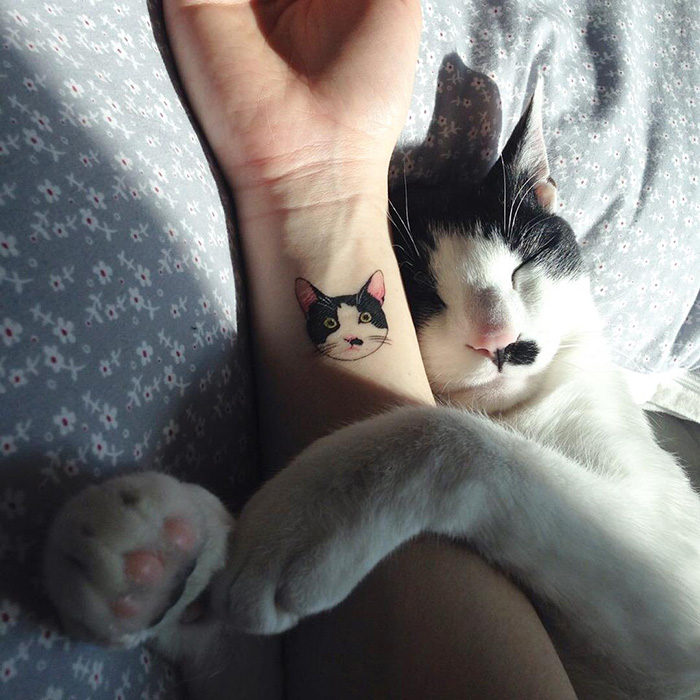
While tattooing is illegal and seen as taboo in South Korea, some young Koreans are choosing cat tattoos as a fun way to rebel (and honor their feline companions at the same time). Photo credit: boredpanda.com
“There has definitely been an increase in people who like cats,” agreed Sojoun. “As more people begin to own foreign purebred cats, they also show more affection for the native Korean cats. Young people who have specialized jobs and artists seem to prefer having cats (and) there is an increase in people owning multiple cats. But as of now, the majority of Korean citizens prefer to own dogs.”
One recent trend seen popping up across South Korea, especially in Seoul, Daegu and Busan, may signify that things are indeed changing for the better for felines. Enter the Cat Café, a popular Korean pastime originally developed in Japan and Taiwan. Like Japan, Korea’s cities are densely populated, with the majority of people living in small, close-knit apartments that have strict “no pets” policies. Hence, cat cafés are able to fill a need by providing safe, clean and relaxing social environments where animal lovers can interact with friendly (often purebred) felines and enjoy caffeinated beverages. What a great way to change the hearts and minds of former cat-haters! What could possibly go wrong?
“It is rare to find a cat cafe that is being managed properly,” said Sojoun, dashing my optimism. “Cats are different from dogs in that they are very vulnerable to disease and have high chances of contagion when put in groups. In addition, their mental stress rates increase dramatically as they find it hard to have quiet moments to themselves. Cat cafés are intended for business purposes and despite the fact that people can adopt the cats from the cafés, the public consensus leans toward purebred rather than mixed felines.”
She added, “CARE would much rather prefer the minimal owning of house pets by responsible people than a mass trend leading to more breeding businesses. If one feels compelled to own a pet then we strongly encourage them to adopt rather than to buy purebreds. Of course, cafés intended solely for adoption purposes sound like great ideas if they are maintained well hygienically. Regular cat cafés confine the animals for their entire lives while adoption cafés are there to temporarily house cats without homes, so we wholly support the latter.”
Michele Brown, co-founder and director of SayNoToDogMeat.Net, a non-profit organization focused on ending the dog and cat meat trade in Asia and Africa, asserted that while businesses such as cat cafés may have favorable influence on changing the perception of cats in South Korea, the country has a very long way to go in becoming a more humane nation.
“I think anything that shows cats and dogs as ‘nice’ and as ‘companions’ that have ‘feelings’ is a good thing, even in cat cafés in South Korea,” said Michele. “However, I’m suspicious about cats in cafés who lose their cuteness or scratch someone – what happens to them? It worries me that they will be sold to cat butchers or just tossed. As for the younger generation, only a small percentage is warming to cats or even dogs. I have been to Moran Market and I have seen the dog and cat meat trade in action with my own eyes. I have seen the cages of cats and the way they are treated. Cats are in very serious trouble in South Korea and will be for a long time to come, in my opinion.”
Hopefully, as more worldly, conscious and caring generations of South Koreans begin to replace the ignorant, callous and cruel, we will see a much-needed sea change in how the country views, treats and protects its animals, especially those dependent on humans for their care and survival. As one of the most technologically advanced, mature democracies in the world with an impressive record of innovation, economic reform and sound leadership, South Korea has much to be proud of. But when it comes to animal welfare practices and policies (or lack thereof), it should be deeply ashamed. I look forward to seeing this mighty powerhouse of a country mature into a more compassionate, animal-friendly society where tougher laws will actually be enforced; where well-run shelters will be designed to help, not harm, abused and abandoned animals; where the greedy pet industry will be regulated and controlled; where prejudice and superstition against certain animals will be eradicated, and where “cuteness” will cease to be the superficial standard by which an animal’s life is valued.
Meanwhile, I will not be spending my tourist dollars in South Korea or in any country that condones and supports systemic animal cruelty, whether in the name of “cultural tradition” or otherwise. There is no excuse for barbarity and no country has the right to call itself “civilized” while carrying out such depraved behavior. South Korea has a lot to lose from its poor reputation in the global animal welfare community. And the eyes of the world are watching.
Want to do something to help the cats (and dogs) of South Korea? Consider supporting CARE and SayNoToDogMeat.Net, as well as these amazing organizations:
- Humane Society International
- In Defense of Animals (IDA)
- International Aid for Korean Animals
- Korea Animal Rights Advocates (KARA)
“We must fight against the spirit of unconscious cruelty with which we treat the animals. Animals suffer as much as we do. True humanity does not allow us to impose such sufferings on them. It is our duty to make the whole world recognize it. Until we extend our circle of compassion to all living things, humanity will not find peace.” – Albert Schweitzer
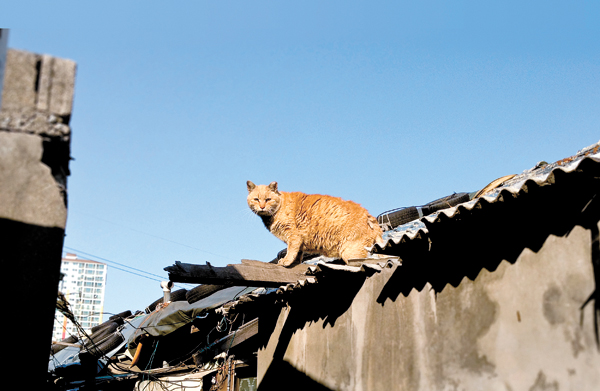
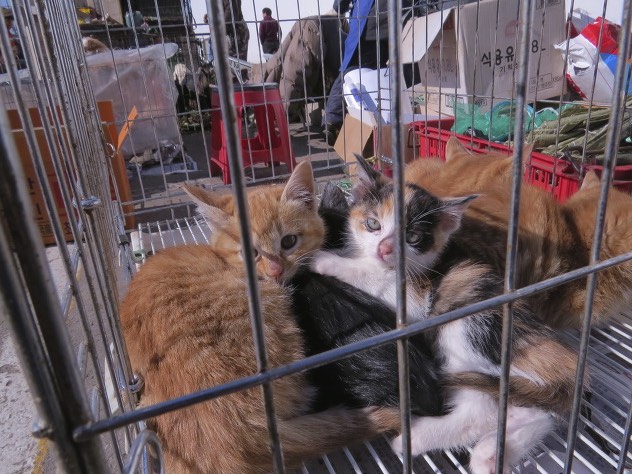
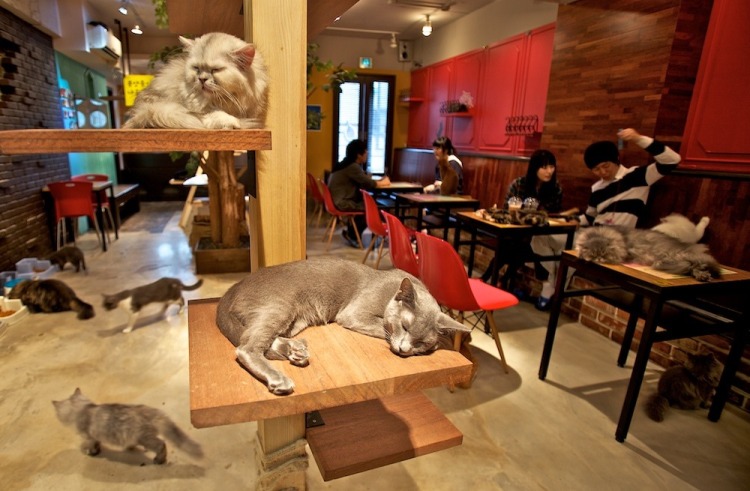
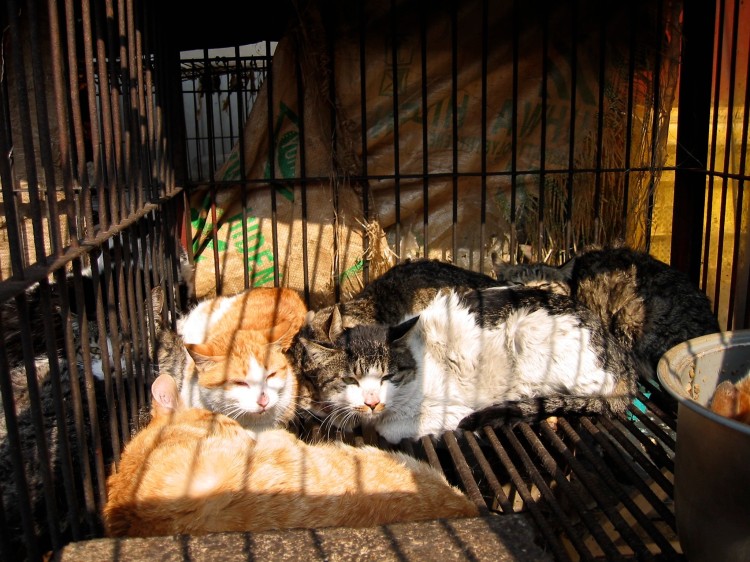
Pingback: This Livestream Of Stray Cats Eating Is A Good Sign For Korea's Felines - CAT INFO FACTS
Makes me sick..it very sad that many Koreans come to the united states and continue their barbaric treatmeant towards animals.. I ve had many talks with them and some not so nice talks about the laws in the USA. Even in this country they continue to treat animals in abusive ways. Lets educate all and stop it.
LikeLike
This is a animal lovers nightmare these beautiful innocent vunerable cats and dogs are in a nightmare just so wicked beyond belief
LikeLike
Pingback: Quick FAQ for USFK and Foreigners Living in South Korea – Beyond The Ville
Please end this cruelty
LikeLike
The barbaric dog and cat meat trade in South- Korea is a shame.
Millions of dogs and cats are tortured every year in South- Korea.
This trade has to stop.
LikeLike
Pingback: 【脳が、震える。】韓国ラーメン総合スレ3 【犬猫虐待地獄絵図】 – お料理・大食い速報